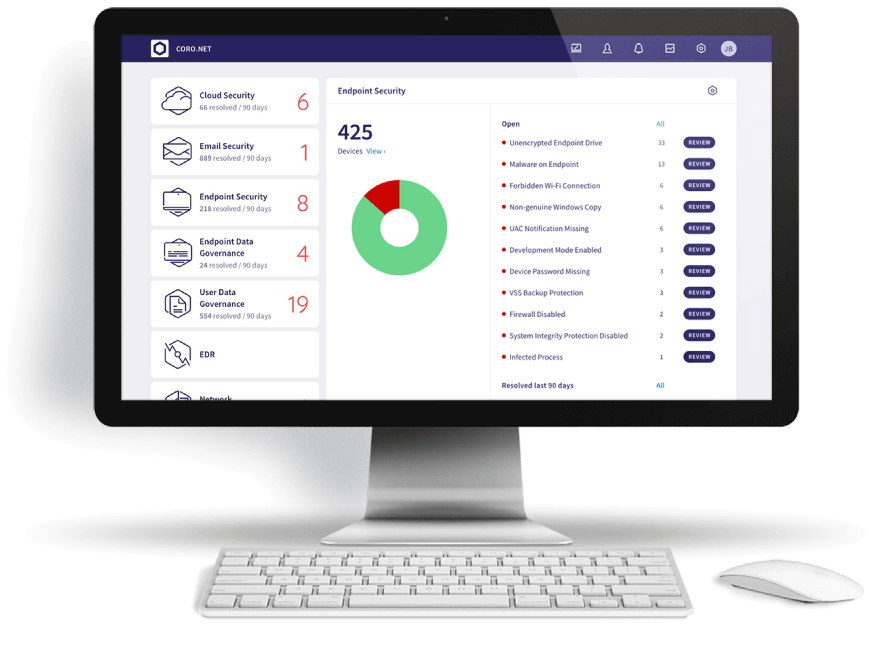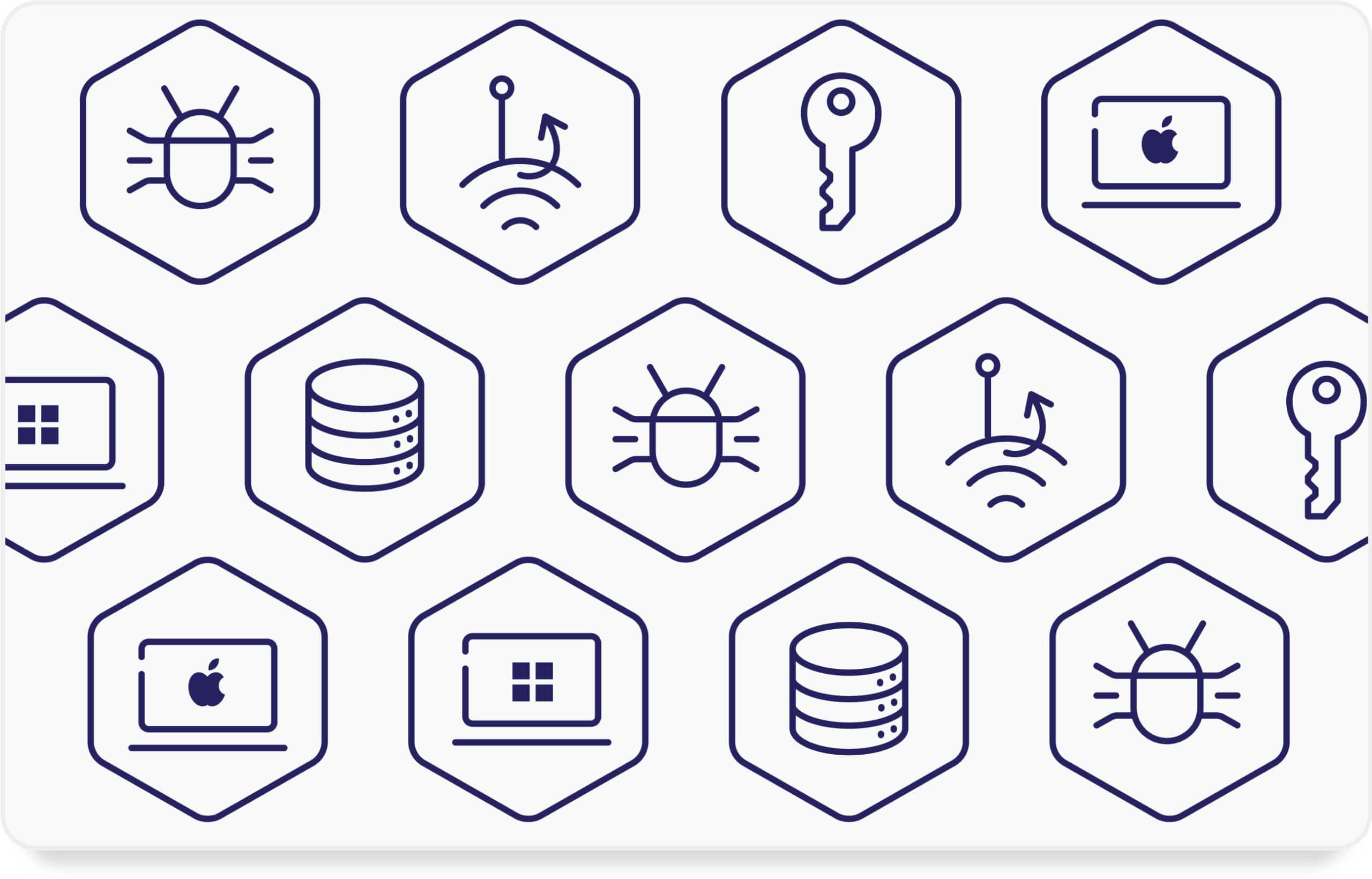Thanks to the wider accessibility of lightning-fast internet speeds, it’s possible to outsource nearly any service to providers around the globe. This way, you can add expertise and assets to your team without draining the precious budgets needed to run a small or medium enterprise.
That is where Managed Service Providers (MSP) come in. An MSP can act as an outsourced IT department, handling a variety of tasks like network management, application support, and infrastructure maintenance. They ensure your IT systems run smoothly and are available to your employees.
Within this realm there are also Managed Security Service Providers (MSSP), which offer a similar function, but with a focus and specialization in cybersecurity that most MSPs may not have. In this article, we’ll explore the differences between the two in closer detail, in case you’re thinking about onboarding one or the other.
What is a Managed Service Provider (MSP)?
As mentioned, MSPs provide defined, remote IT services to businesses that can’t afford or simply don’t have access to internal experts that can manage their databases, systems, and applications. MSPs can help you stay on top of current tech trends, save your business time and money, and generally take care of the majority of your organization’s IT functions so you can focus on key objectives.
MSPs may offer services like:
- Network Management: MSPs keep your network infrastructure running smoothly. This includes monitoring network performance, troubleshooting connectivity issues, and ensuring network security (although sometimes to a lesser extent than an MSSP).
- Application Support: They provide support for the applications your business uses, including installation, configuration, troubleshooting, and updates.
- Database Administration: For businesses that rely on databases, MSPs can handle database managerial tasks like backups, performance optimization, and security.
- Infrastructure Maintenance: This covers maintaining your IT infrastructure, including hardware and software. MSPs can perform routine maintenance, updates, and replacements to keep your systems running efficiently.
- User Troubleshooting: If your employees encounter technical glitches, MSPs can provide help desk support to diagnose and resolve those issues.
- Cybersecurity: Along with all these other components, many MSPs also provide cybersecurity services. As you can see though, cybersecurity is usually part of a wider menu of MSP offerings.
Additionally, Some MSPs may offer disaster recovery planning, data backup, and recovery services and cloud services management.
Now that we’ve run through some of the most common responsibilities of an MSP, let’s talk about the work of an MSP.
What is a Managed Security Service Provider (MSSP)?
MSSPs are an evolution of MSPs with a strict emphasis on cybersecurity. MSSPs proactively monitor your systems for threats, respond to security incidents, and help you develop a security plan.
Just like outsourced managed IT services, most MSSPs are hired because the organization cannot afford or do not have the expertise they need to manage cybersecurity in house. Many MSPs even use MSSPs to ensure the security of their own systems and that of their clients.
MSSPs can offer a suite of services including:
- Managed Security Monitoring (MSM): This is the bread and butter of MSSPs. They continuously monitor your systems and networks for security events, such as suspicious login attempts or malware activity. They’ll investigate these events and take action if necessary.
- Vulnerability Assessment and Risk Management: MSSPs can identify weaknesses in your systems and infrastructure through vulnerability scans. They’ll then help you prioritize and address these vulnerabilities to reduce your risk of a cyberattack.
- Threat Intelligence: MSSPs leverage threat intelligence feeds to stay up-to-date on the latest cyber threats and hacking techniques. This allows them to proactively defend your systems against emerging threats.
- Security Consultation and Program Development: MSSPs can provide expert advice on how to improve your overall security posture. They can also help you develop a security program that aligns with your business needs and compliance requirements.
- Security Incident Response: In the event of a security breach, MSSPs can help you contain the damage, eradicate the threat, and recover your systems.
They may even offer compliance monitoring, security awareness training, or security assessments.
What Is the Difference Between an MSSP and MSP?
Both MSPs and MSSPs offer valuable third-party services to businesses, but their areas of expertise differ significantly.
MSPs are your IT general contractors. They handle a wide range of tasks to keep your technology running smoothly. This can include network management, application support, database administration, and general user troubleshooting. Security might be one service they provide among many others.
MSSPs are your dedicated security specialists. Their focus is laser-sharp: cybersecurity. They proactively monitor your systems for threats, identify vulnerabilities before they get exploited, and help you respond to security incidents if they occur.
Many MSPs recognize the importance of cybersecurity and partner with MSSPs to offer comprehensive IT solutions. This allows them to provide a broader range of services, including managed detection and response, intrusion and prevention services, or security incident planning and management.
Which Service Do I Need?
If you primarily need help with day-to-day IT tasks like network management, application support, and user troubleshooting, then an MSP is a good fit. They can handle a wide range of IT tasks and also often offer basic security services. If you’re partnering with an MSP, make sure that they have cybersecurity services in place to protect your interests.
If cybersecurity is a top concern, or you’re in an industry with strict data compliance regulations, then an MSSP might be a good way to go. They can proactively defend your systems against cyber threats and help you respond to security incidents.
Larger businesses with extensive IT infrastructure or those dealing with sensitive data often benefit from both MSP and MSSP services. An MSP can manage your day-to-day IT operations and provide security, while an MSSP focuses mainly on offering a dedicated security layer.
Both roles are incredibly valuable in modern business environments, but it’s good to know the difference when you’re considering options.






















